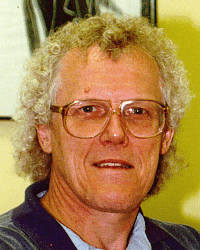Numerically Aided Phenomenology
A two-day workshop with Don Kuiken, University of Alberta.
Info about event
Time
Location
IMC meeting room, building 1483-3, Nobelparken, Jens Chr. Skous Vej 4, 800 Aarhus C
Organizer

Numerically Aided Phenomenology: A Workshop Agenda
Don Kuiken, University of Alberta
Numerically aided phenomenology is a set of procedures for systematically describing categories of lived experience. Across a set of experiential narratives, (1) recurrent meaning expressions are identified and paraphrased; (2) judgments about the presence or absence of these expressions are used to create matrices representing the profiles of meaning expressions in each experiential narrative; and (3) cluster analytic algorithms are used to group these experiential narratives according to the similarities in their profiles of meaning expressions. Whereas an earlier version of these procedures (Kuiken & Miall, 2001; Sikora, Kuiken, & Miall, 2011) was limited to literal assertions of sameness across experiential narratives, this workshop will demonstrate how to facilitate more refined explication of recurrent meaning expressions. The “poetics” of such explication include, for example, enactive saying (Merleau-Ponty), metaphoric fusion (Ricoeur), and syntax conversion (Heidegger). Taken together, these procedures provide categories of similar experiential narratives (morphological essences) for which the distinctive meaning expressions are as richly articulated as possible.
Session I will introduce a version of the phenomenological epoché that Gendlin (1997) calls “clearing a space.” By putting into abeyance concerns that may intrude during reflection, the epoché enables open and direct reference to the felt sense of “sameness” in two selected experiential narratives. This process will be demonstrated using a collection of short poems—and then extended to experiential narratives taken from an actual research setting.
Session II will introduce a graded sequence of activities that facilitate “poetic” articulation of the felt sense of “sameness” in two selected experiential narratives. This sequence includes (1) enactive saying (Merleau-Ponty), (2) syntax conversion (Heidegger), and (3) metaphoric fusion (Ricoeur). Using experiential narratives taken from an actual research setting, this demonstration will emphasize how the articulation of “sameness” is descriptive but not explanatory.
Session III will introduce procedures for systematically judging the presence or absence of the “same” meaning expressions across a set of experiential narratives to create matrices of thematic “constituents.” Procedures that enable consideration of co-occurrence, temporal sequence, and levels of abstraction will be demonstrated using experiential narratives taken from an actual research setting.
Session IV will introduce the cluster analytic algorithms used to group experiential narratives according to the similarities in their profiles of thematic “constituents.” Using profiles of constituents identified during the workshop, this demonstration will accentuate decisions about numeric algorithms, relations between phenomenologically derived constituents and other “data,” the “discovery” of unexpected meaning expression profiles, and the iterative process of category development.
Participation will involve active articulation of thematic constituents and cooperative preparation of a matrix of such constituents. Some aspects of participation may be personally involving, although personal disclosure is always optional. Because aspects of workshop activities will be completed online, participants are strongly encouraged to bring laptop computers (with functional web browsers).
